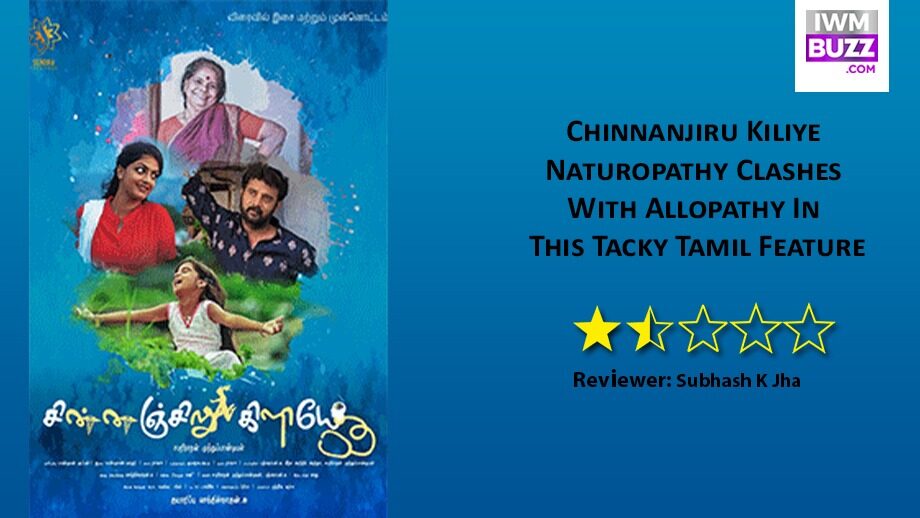Chinnanjiru Kiliye
Directed Sabarinathan Muthupandian
Rating: * ½
This Tamil heat-and-mess concoction has a lot to say about natural medicines versus pharmaceutical manufacturers, about relationships fractured by, hold your breath, going to hospitals and doctors rather than relying on herbs and weeds, some of them, I am sure,highly inflammable.
So there is this steeply melodramatic episode in a film that reads like a clumsily-illustrated comicbook skipping from one episode to another, where the simple homeopathic witch doctor’s wife dies in labour in hospital.
“If only you had not taken her to the hospital and let her deliver at home,” sobs our hero hysterically, “she would be alive today.”
Okay then.
Evidently, Manikam—yes that’s our protagonist played effectively by Senthilnathan(who is also the film’s producer)—has not seen Kornél Mundruczó’s fabulous Pieces Of A Woman which re-defined the whole concept of home delivery.
Manikam in all his naivete(which, I suspect, he shares with the film’s writer-director) rants and raves against modern medicine , more so when at a medical camp in his village his little daughter’s bone marrow is slyly removed when she goes to get a small cut in her leg patched up.Talk about a stitch in time.
Wait wait. We’re now getting started. The commodious narrative has just warmed up. The number of twists and turns that follow will boggle the most patient mind. I, alas, am not one of them. My tolerance for the film’s overweening self righteousness hit the zero level sometime after the first one hour. Until then I smiled indulgently at the cringe-worthy romance between the hero and the local hottie(Sandra Nair) performed to songs that would make you swoon if you are either nostalgia-fixated or catatonic, or both.
The films’ most honest moments are those featuring the father and his little daughter. Shots of them playing, sleeping together, etc are captured with a finesse that seems weirdly at odds with the overall tackiness and crudity in the presentation.Later I got to know that the little girl (Baby Pathivaththini) is the hero’s real-life daughter.
In the third , and easily the most indigestible , act of the film the narrative crouches into a sanctimonious acrimony, to expose juvenile organ trade in our country. Manikam soon goes missing. Which is the best thing to happen to his character, considering the writers were not allowing him to get anywhere.We, sadly, have no choice.
Follow us on
